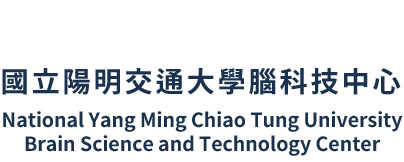
腦科技中心,由原國立交通大學腦科學研究中心於國立陽明大學與國立交通大學合校後更名。
中心成立於2003年,由台灣聯合大學系統支援促成,涵蓋認知神經科學與工程跨領域的中心,整合人文社會、認知神經科學、臨床醫學、電腦資訊科學及電機工程等領域,並擁有智慧型資訊學習與神經工程技術。結合運用工程背景知識及經驗搭配跨領域團隊合作來發展自然認知神經科學和工程。本中心迄今與美國聖地牙哥加州大學SCCN雙邊合作長達十五年以上,期間雙邊學者在認知科學、計算神經科學及人類神經工程系統上研究發展均有重大突破。
Brain Science and Technology Center (BSTC) was renamed from National Chiao Tung University Brain Research Center after National Yang Ming University and National Chiao Tung University merged together.
The center was established in 2003, supported by University system of Taiwan. It covers a cross-field center of cognitive neuroscience and engineering, integrating social science, cognitive neuroscience, clinical medicine, computer information science, and electrical engineering. The bilateral collaboration between BSTC and the Swartz Center for Computational Neuroscience, University of California, San Diego (SCCN, UCSD) has lasted for more than fifteen years, and both centers have made significant breakthroughs in cognitive neuroscience, computational neuroscience, and neuroergonomics.

研究重點 Main Research
| 1.自然性基礎神經科學:研發新技術和工具探索現實環境中基礎神經科學,主要方向為(a)建立工具用於分析巨量資料與(b)發展實用技術於巨量雲端腦科學。 | 1.Basic neuroscience: to study and develop new technologies to explore basic neuroscience in the real environment. The main directions are (a) establishing mechanisms for analyzing big data and (b) developing practical technologies of cloud computing for brain research. |
| 2.轉譯神經科學:將基礎腦科學研究成果轉化建立模組,實際用於日常生活,改善生活與健康狀況,主要方向為(a)發展日常個人型腦機介面技術、(b)開發臨床醫學輔助診斷技術與(c)建構居家健康照顧系統。 | 2.Translational neuroscience: Translating the research findings of cognitive neuroscience research to apply in daily life to improve life and health. The main directions are (a) developing personal brain-computer interface technology, (b) improving computer-assisted clinical diagnosis technology, and (c) constructing a home health care system. |